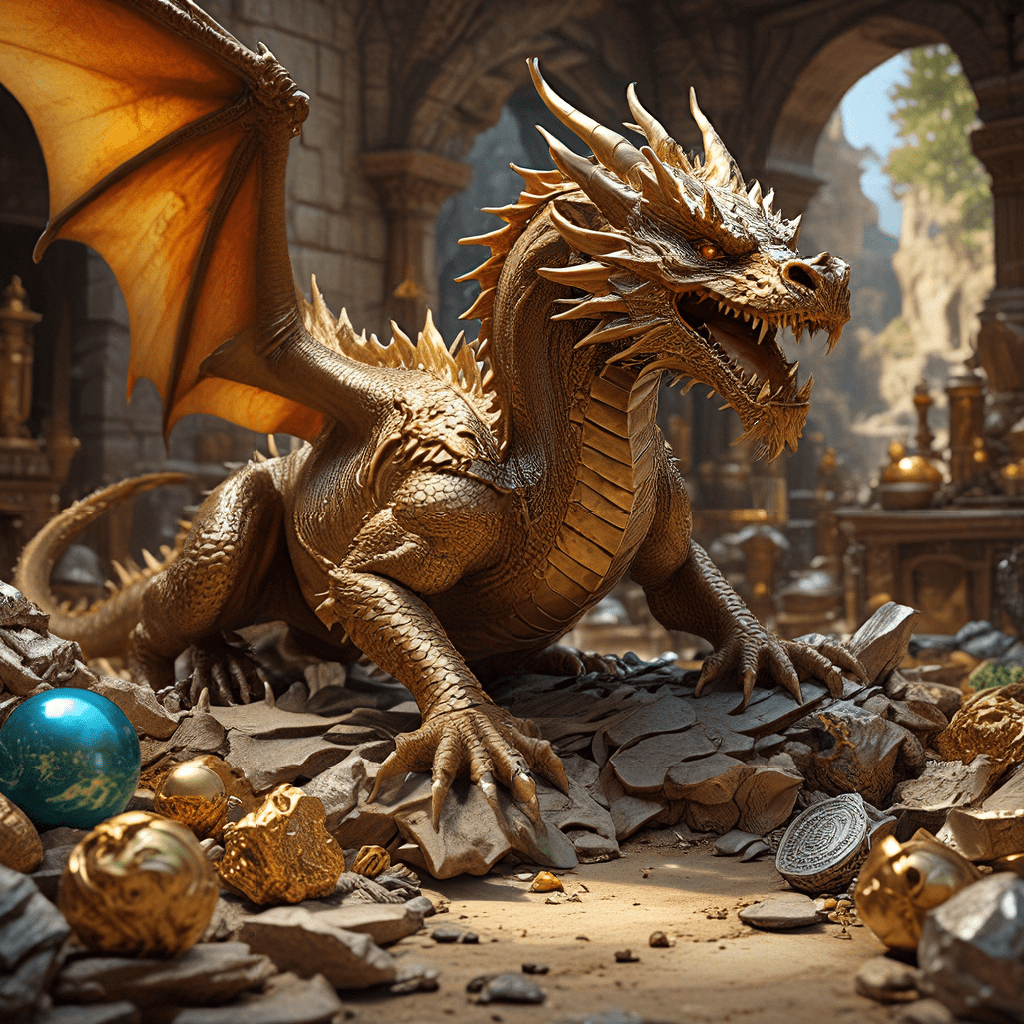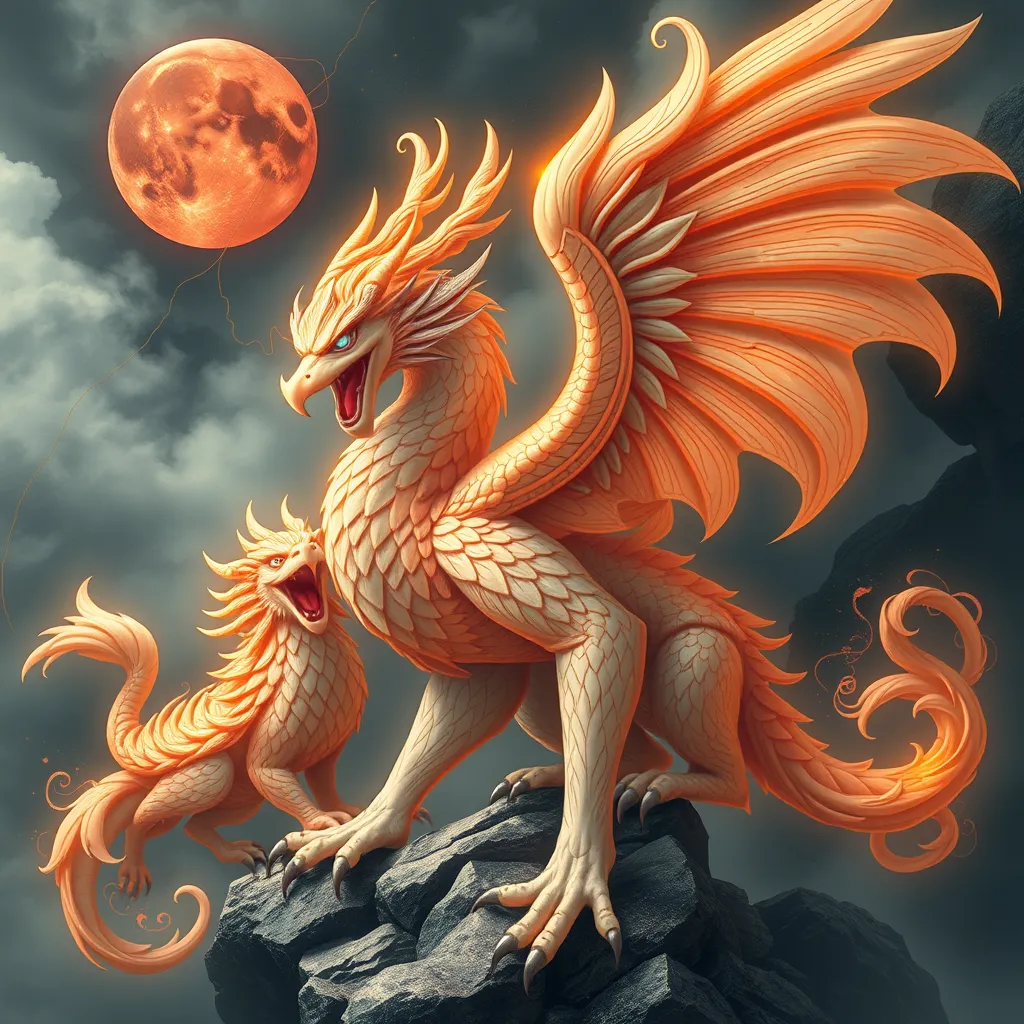The Dragon’s Lair: A Journey into the World of Dragon Treasures
From Myth to Metaphor: The Origins of Dragon Hoards
Dragons, those mythical creatures of fire and fear, are often associated with immense wealth. From ancient folklore to modern fantasy, the image of a dragon guarding a vast treasure trove is deeply ingrained in our collective imagination. But where did this association come from?
The notion of dragons guarding treasure likely originated from a combination of factors. In many cultures, dragons were seen as powerful forces of nature, embodying the raw power and unpredictability of the wild. This perception was further influenced by the fact that dragons were often associated with precious metals like gold and silver. In ancient times, these metals were seen as sacred, representing the power of the sun and the earth.
The dragon, with its fiery breath and formidable size, became a natural symbol for these powerful elements. As such, it was only natural that these creatures would be seen as guardians of the Earth’s riches. This association was further amplified by the fact that many cultures believed dragons lived in caves, which were often perceived as gateways to the underworld and its hidden treasures.
Beyond Gold and Gems: The Symbolic Value of Dragon Treasures
While dragons are often depicted as guarding mountains of gold and glittering jewels, their hoards often hold much more than just material wealth. They represent a wealth of knowledge, wisdom, and power. These treasures often symbolize the dragon’s connection to the natural world, their dominion over the earth’s resources, and their ability to transform and create.
For example, the dragon’s hoard might include rare herbs and spices, powerful minerals, or artifacts imbued with magical power. These treasures, beyond their monetary value, represent the dragon’s ability to harness the forces of nature and manipulate them for their own purposes. They are more than just objects; they are potent symbols of the dragon’s power and influence over the world.
The Power of Hoarding: Exploring the Psychological Significance of Accumulation
The idea of a dragon hoarding treasure taps into a primal human instinct: the desire to accumulate and possess. We are drawn to the idea of having a secure stash of valuables, a hidden reserve of resources that can protect us from the uncertainties of life. This desire is deeply ingrained in our psychology, and it is reflected in the stories we tell about dragons and their hoards.
However, the act of hoarding is not always a positive one. It can also be seen as a sign of greed, selfishness, and an inability to share. The dragon, with its possessive nature, can be viewed as a cautionary tale about the dangers of unchecked greed and the potential consequences of hoarding wealth for oneself.
Ancient Echoes: Dragon Hoards Across Cultures and Mythologies
The image of a dragon guarding treasure is a universal motif found in countless myths and legends across the globe. From the ancient Chinese dragon, who is said to have guarded the emperors’ treasures, to the European dragon of medieval folklore, whose hoards inspired countless tales of adventure and heroism, dragons have been linked to wealth and power in cultures around the world.
These stories reflect the human fascination with the unknown and the desire to explore the boundaries of our world. The dragon’s hoard, a symbol of both power and danger, represents the potential rewards and risks of venturing into the unknown. Each culture’s interpretation of the dragon and its hoard offers insights into their beliefs about the natural world, the forces of creation, and the human desire for wealth and power.
The Serpent’s Wisdom: The Role of Dragons in Ancient Religions and Beliefs
In many ancient religions and belief systems, dragons were seen as powerful beings with deep connections to the spiritual world. They were often associated with the forces of creation and destruction, representing the cyclical nature of life and death. The dragon’s hoard, in this context, can be seen as a symbol of their wisdom and knowledge, passed down through generations.
Dragons’ connection to the earth’s resources and the power of transformation often placed them in the role of guardians of knowledge, holding ancient secrets and wisdom within their hoards. These treasures, beyond their physical material, represent the insights and understanding gained through the dragon’s long life and close relationship with the natural world.
The Dragon’s Lair: A Journey into the World of Dragon Treasures
From Myth to Metaphor: The Origins of Dragon Hoards
Dragons, those mythical creatures of fire and fear, are often associated with immense wealth. From ancient folklore to modern fantasy, the image of a dragon guarding a vast treasure trove is deeply ingrained in our collective imagination. But where did this association come from?
The notion of dragons guarding treasure likely originated from a combination of factors. In many cultures, dragons were seen as powerful forces of nature, embodying the raw power and unpredictability of the wild. This perception was further influenced by the fact that dragons were often associated with precious metals like gold and silver. In ancient times, these metals were seen as sacred, representing the power of the sun and the earth.
The dragon, with its fiery breath and formidable size, became a natural symbol for these powerful elements. As such, it was only natural that these creatures would be seen as guardians of the Earth’s riches. This association was further amplified by the fact that many cultures believed dragons lived in caves, which were often perceived as gateways to the underworld and its hidden treasures.
Beyond Gold and Gems: The Symbolic Value of Dragon Treasures
While dragons are often depicted as guarding mountains of gold and glittering jewels, their hoards often hold much more than just material wealth. They represent a wealth of knowledge, wisdom, and power. These treasures often symbolize the dragon’s connection to the natural world, their dominion over the earth’s resources, and their ability to transform and create.
For example, the dragon’s hoard might include rare herbs and spices, powerful minerals, or artifacts imbued with magical power. These treasures, beyond their monetary value, represent the dragon’s ability to harness the forces of nature and manipulate them for their own purposes. They are more than just objects; they are potent symbols of the dragon’s power and influence over the world.
The Power of Hoarding: Exploring the Psychological Significance of Accumulation
The idea of a dragon hoarding treasure taps into a primal human instinct: the desire to accumulate and possess. We are drawn to the idea of having a secure stash of valuables, a hidden reserve of resources that can protect us from the uncertainties of life. This desire is deeply ingrained in our psychology, and it is reflected in the stories we tell about dragons and their hoards.
However, the act of hoarding is not always a positive one. It can also be seen as a sign of greed, selfishness, and an inability to share. The dragon, with its possessive nature, can be viewed as a cautionary tale about the dangers of unchecked greed and the potential consequences of hoarding wealth for oneself.
Ancient Echoes: Dragon Hoards Across Cultures and Mythologies
The image of a dragon guarding treasure is a universal motif found in countless myths and legends across the globe. From the ancient Chinese dragon, who is said to have guarded the emperors’ treasures, to the European dragon of medieval folklore, whose hoards inspired countless tales of adventure and heroism, dragons have been linked to wealth and power in cultures around the world.
These stories reflect the human fascination with the unknown and the desire to explore the boundaries of our world. The dragon’s hoard, a symbol of both power and danger, represents the potential rewards and risks of venturing into the unknown. Each culture’s interpretation of the dragon and its hoard offers insights into their beliefs about the natural world, the forces of creation, and the human desire for wealth and power.
The Serpent’s Wisdom: The Role of Dragons in Ancient Religions and Beliefs
In many ancient religions and belief systems, dragons were seen as powerful beings with deep connections to the spiritual world. They were often associated with the forces of creation and destruction, representing the cyclical nature of life and death. The dragon’s hoard, in this context, can be seen as a symbol of their wisdom and knowledge, passed down through generations.
Dragons’ connection to the earth’s resources and the power of transformation often placed them in the role of guardians of knowledge, holding ancient secrets and wisdom within their hoards. These treasures, beyond their physical material, represent the insights and understanding gained through the dragon’s long life and close relationship with the natural world.
Guardians of the Earth: The Dragon as a Symbol of Nature’s Power and Resources
Dragons, with their connection to the earth and its treasures, often symbolize the raw power and bounty of the natural world. Their hoards, filled with both material wealth and knowledge, represent the potential and resources that the Earth holds. This connection to nature is often seen as a reminder of the importance of conservation, the need to respect and protect the planet’s resources, and the delicate balance that exists between humanity and the environment.
The dragon’s hoard is a testament to the earth’s abundance, a reminder that nature itself is a source of both wealth and wisdom.
The Dragon’s Breath: The Significance of Fire and Transformation in Dragon Lore
Dragons are often associated with fire, a powerful element that represents transformation, creation, and destruction. Their fiery breath is a symbol of their ability to change and reshape the world around them. The dragon’s hoard, with its collection of treasures, can be seen as a symbol of this transformative power.
The dragon, with its connection to fire, embodies the cyclical nature of life and death, growth and decay, and the constant process of transformation that shapes the world. The treasures within its hoard represent the potential for change and the constant evolution of life.
The Alchemy of Wealth: The Connection Between Dragon Treasures and the Transformation of Values
The dragon’s hoard is not just a collection of valuable objects; it is a symbol of the transformation of values. The process of gathering and hoarding treasure is a metaphor for the way that we transform our desires and aspirations into tangible forms of wealth. The dragon, with its ability to amass great riches, represents the power of ambition and the drive to achieve our goals.
The treasures within the dragon’s hoard represent the rewards of this process, the tangible evidence of our efforts. However, they also serve as a reminder of the dangers of focusing solely on material wealth and the need to consider the broader implications of our choices.
The Dragon’s Legacy: The Enduring Impact of Dragon Hoards on Literature, Art, and Popular Culture
Dragon hoards, with their enduring power and symbolism, have left an indelible mark on literature, art, and popular culture. From epic poems and fantasy novels to movies and video games, the image of a dragon guarding a treasure trove continues to captivate and inspire.
These stories and images remind us of the enduring power of imagination and the human fascination with the unknown. They also demonstrate the importance of stories in shaping our understanding of the world and the powerful influence of myth and legend on our collective consciousness.
## FAQ
**Q: What is a dragon hoard?**
**A:** A dragon hoard is a mythical collection of treasure, often guarded by a dragon. It typically includes gold, silver, jewels, and other precious objects.
**Q: What is the symbolic meaning of a dragon hoard?**
**A: ** Dragon hoards represent a variety of things, including:
* **Wealth and power**: Dragons are often associated with immense wealth and power, and their hoards symbolize these attributes.
* **Knowledge and wisdom**: In some cultures, dragons are seen as guardians of knowledge and wisdom, and their hoards represent the accumulation of this knowledge.
* **Transformation and creation**: Dragons are often associated with fire, which represents transformation and creation. Their hoards symbolize their power to change and shape the world around them.
* **The dangers of greed**: The act of hoarding, whether by a dragon or a human, can be seen as a symbol of greed and the dangers of unchecked materialism.
**Q: What are some examples of dragon hoards in mythology and literature?**
**A:** There are countless examples of dragon hoards in mythology and literature. Some notable examples include:
* **Fafnir’s hoard** in Norse mythology
* **The dragon’s hoard** in the story of Beowulf
* **Smaug’s hoard** in J.R.R. Tolkien’s *The Hobbit*
**Q: What are some real-world examples of hoards?**
**A:** While dragons are fictional, some real-world examples of hoards include:
* **The Sutton Hoo Ship Burial**: This Anglo-Saxon burial mound from the 7th century contained a vast amount of treasure, including weapons, jewelry, and other artifacts.
* **The Midas Tomb**: This ancient tomb in Turkey is believed to have been the burial place of King Midas, a legendary king who was said to have been able to turn everything he touched into gold.
**Q: Why are we so fascinated by dragon hoards?**
**A:** Dragon hoards are a powerful symbol of desire, ambition, and the potential for both good and evil. They represent the human fascination with wealth, power, and the unknown. They also tap into our primal instincts to accumulate resources and protect ourselves from the uncertainties of life.



